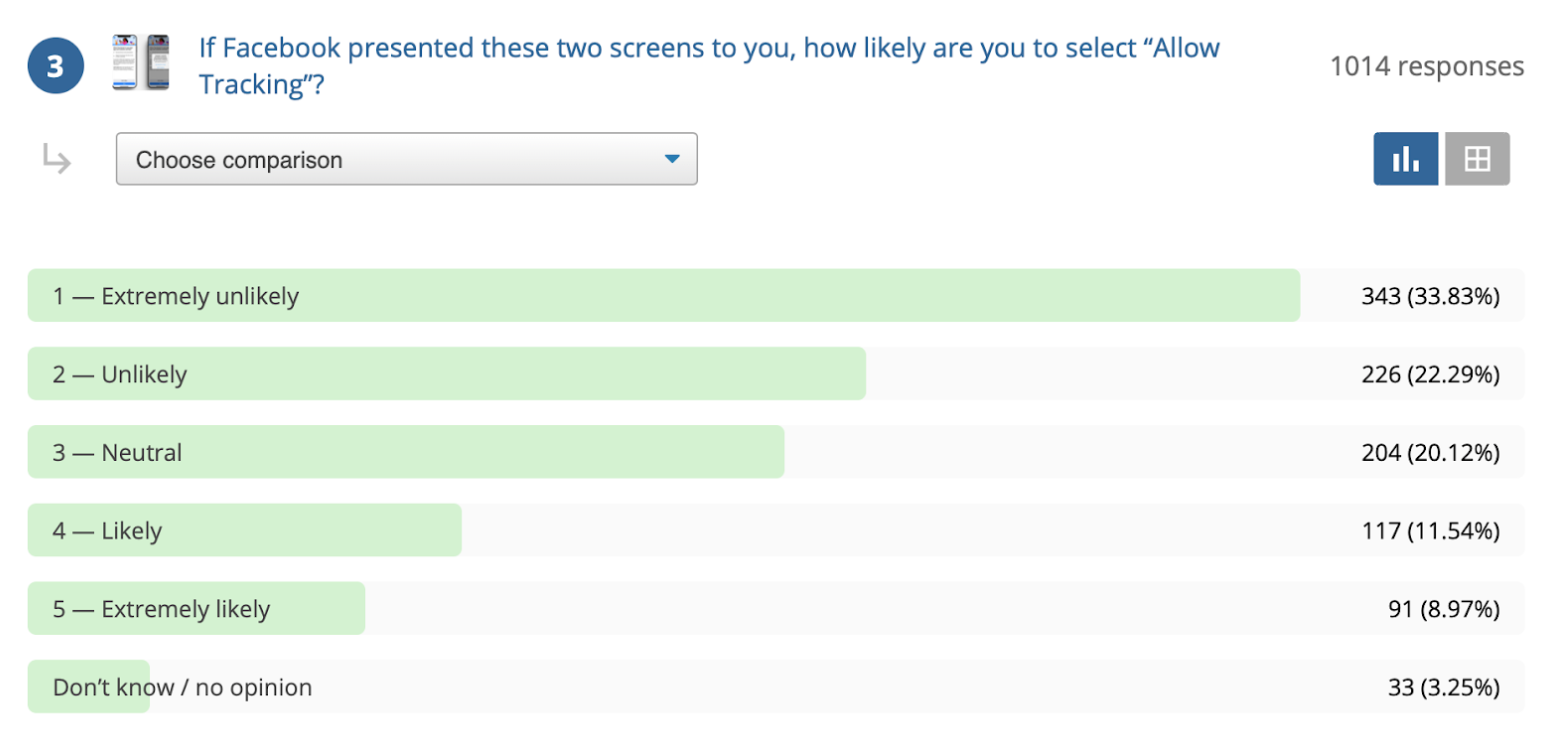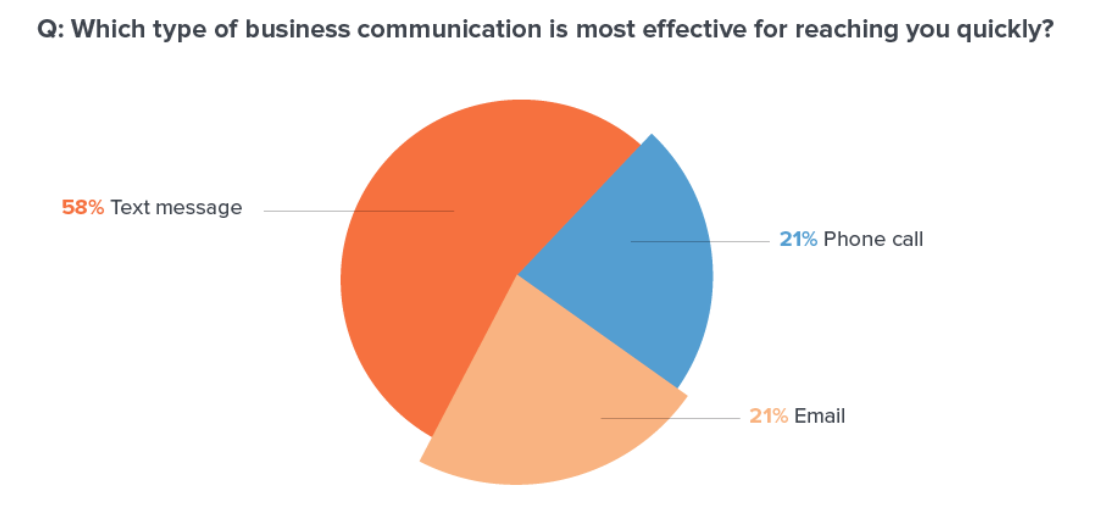Just Say No to Tracking, SMS-SMB Opportunity, Do Digital Ads Really Work?

Survey: Majority Will Say No to Facebook Ad Tracking
Facebook has begun testing a prompt asking users to embrace ad tracking ahead of Apple's App Tracking Transparency (ATT) consent requirement. Facebook says opting-in will deliver "more personalized ads" and "support for businesses that rely on ads to reach customers" – the implication is: SMBs. A new TapResearch survey found, however, that 56% were hostile Facebook's pitch. Those under 34 were more receptive than other groups. An earlier survey found roughly 60% were open to opting-in if publisher pitches were compelling.

Our take:
- About 20% of the audience appears persuadable; however, surveys and behavior are often two different things.
- The survey suggests a large percentage of Facebook's iPhone audience, as the company fears, will be lost to ad tracking.
- Google is considering a more ad-friendly version of Apple's tracking-consent prompt; but audience modeling will be the way forward for both platforms.
SMS Could Be Big for SMBs, Consumers Are Ready
SMS has been an underdeveloped marketing and B2C communication channel for years. According to a new report from Zipwhip, the majority consumers (58%) believe texting is a more effective B2C communication tool than calls or email. Most businesses (70%) are now using SMS for customer and employee communication. But consumers have a particular set of use cases in mind: 1) appointment reminders, 2) shipping updates and 3) discounts on products and services. The guiding principle: deliver value, not spam.

Our take:
- While many SMBs use texting today, there's a meaningful opportunity to more formally embrace SMS for more effective promotion/communication.
- Both Google and Facebook continue to promote messaging as a core marketing tool for SMBs; expect even more emphasis going forward.
- Messaging is a marketing and feedback tool without a software learning curve for SMBs, which makes it primed for broader adoption.
When Brands Turn Off Digital Ads ... Nothing Happens?
Do digital ads drive results? Of course they do. Why then can Forbes cite myriad high-profile examples of brands turning off or radically reducing digital ad spend, with seemingly zero impact. Perhaps the most celebrated cases are: P&G shutting off $200 million in digital spending and Chase cutting programmatic reach from 400,000 to 5,000 sites without a business impact or even improved results. The article concludes: bots drive lots of clicks, test and learn and quality matters most.
Our take:
- Forbes' insights and recommendations are mostly obvious, but imply a bigger problem: waste (and fraud) online.
- Digital advertising has been sold (vs. traditional media) for its precision and accountability. Neither claim is entirely accurate.
- Digital media now faces a reckoning on multiple fronts: reduced trust, brand safety issues, consumer privacy concerns and the loss of tools (cookies, mobile ad IDs), with no easy solutions on the horizon.
Short Takes
- Shopify extends Shop Pay checkout to Facebook and Instagram.
- Apple Maps adds crowdsourced, Waze-like traffic-reporting features.
- New large screen Amazon Alexa media player, chat device and smart home controller coming.
- Apple Watch can "diagnose" COVID-19 before any formal testing.
- Foursquare makes location data available through Snowflake Marketplace.
- Salesforce declares 9 to 5 workday dead; long live the 9 to 9 workday.
- Mid-market is where most hiring is, though SMBs add 51K jobs in January.
- Poll: 85% believe that social media contributes to "radicalization;" 71% want more government regulation.
Please let us know what you think. Email gsterling@nearmedia.co with suggestions and recommendations.

